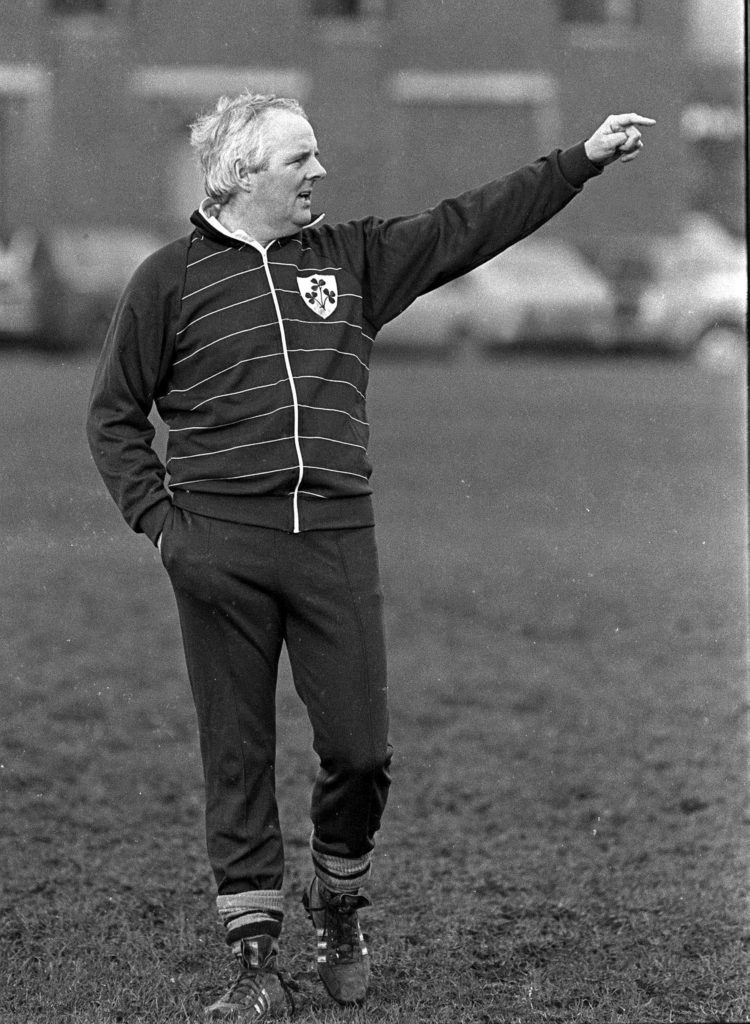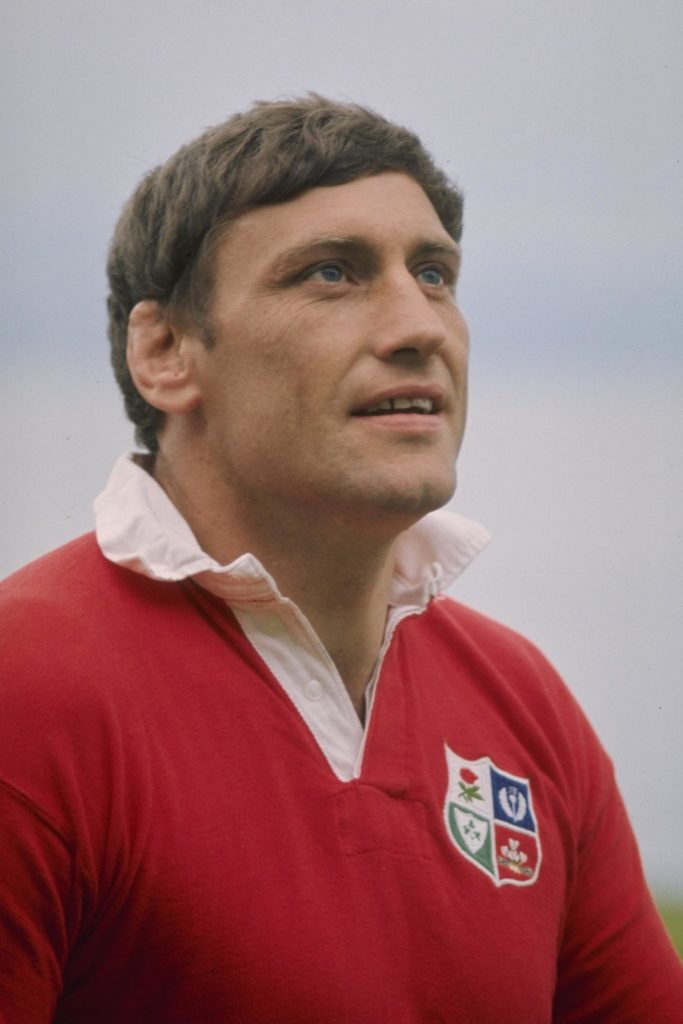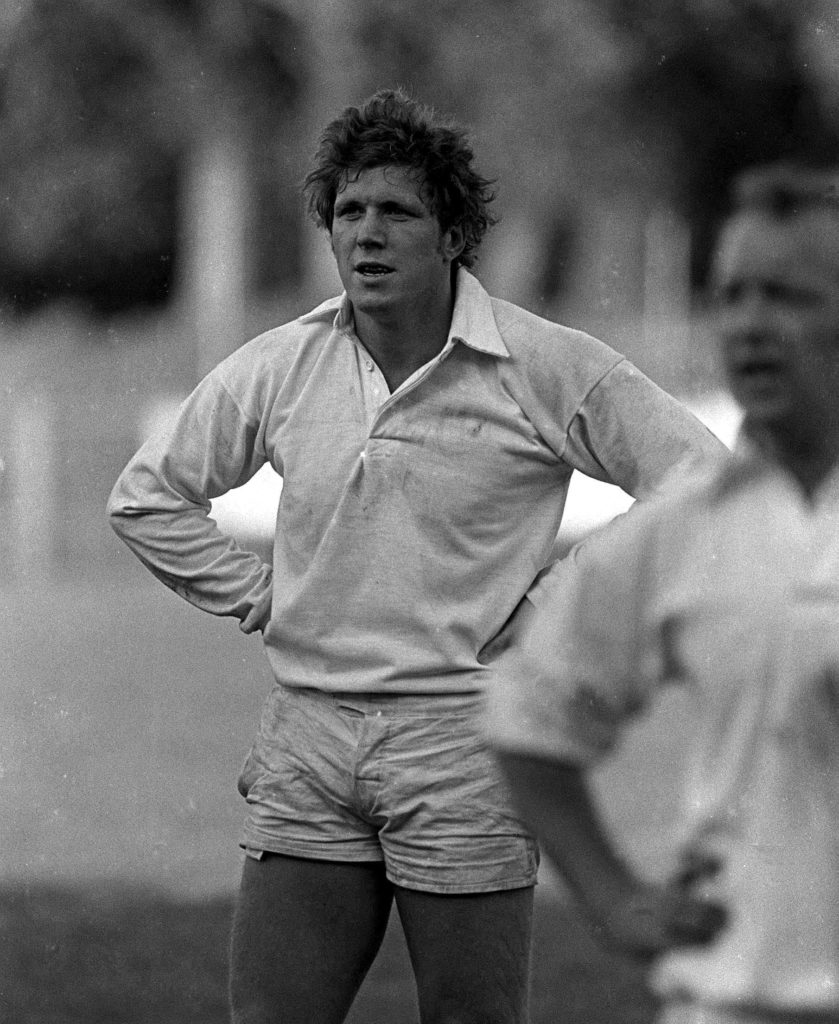THIS weekend in the Six Nations rugby championships, Ireland take on Italy in Dublin, Scotland play France, and England do battle with Wales.
France, who beat Ireland earlier this month, look favourites to become champions.
The matches, largely speaking, will be played in an atmosphere of tolerance and good humour, with little trouble anticipated from the crowds
But fifty years ago it was a different story.
The 1972 Five Nations Championship, as it was then configured, was abandoned for the first and so far only time in its history —through genuine fears of uncontainable violence off the pitch.
Certainly, the tournament was not held during either of the World Wars, but 1972 was the only year when the championship was left unfinished; halfway through, the fixture list was abandoned.
In the aftermath of Bloody Sunday and the subsequent burning of the British Embassy in Dublin, the decision by Scottish and Welsh ruby associations not to play in Ireland meant that the Five Nations was declared null and void.
 Tom Kiernan was among the Ireland players in action during the cancelled tournament
Tom Kiernan was among the Ireland players in action during the cancelled tournamentThe chain of events leading to this unprecedented situation began on January 30.
1972 was the year of Bloody Sunday, an event that has etched itself indelibly on the already blood-stained history of Northern Ireland.
Soldiers from the British Army's 1st Battalion the Parachute Regiment shot dead 13 innocent, unarmed citizens (another died later of his injuries) after opening fire on civil rights demonstrators.
They had been protesting against internment without trial in the North, a measure introduced the previous year.
Bloody Sunday is now regarded as a pivotal moment in the Troubles, one that accelerated the headlong tumble into decades of strife and violence.
In the wake of the killings, the Irish government called a national day of mourning.
Three days later, huge crowds besieged the British Embassy in Dublin and burnt it to the ground.
Against this background of an ever-worsening situation, the Five Nations Rugby Championship continued — for a time.
The tournament had kicked off on January 15, with Wales beating England 12-3 in Twickenham.
On the same day in Edinburgh Scotland had beaten France, and on January 29, Ireland had beaten France in Paris. Ireland had continued their success with a win over England in Twickenham, while Wales dominated Scotland at Cardiff Arms Park.
 Willie-John McBride, the former Ireland and British & Irish Lions captain, spoke out about the anti-Irish sentiment he faced at the time
Willie-John McBride, the former Ireland and British & Irish Lions captain, spoke out about the anti-Irish sentiment he faced at the timeThe scene was set for a showdown between Ireland and Wales for the Grand Slam.
But Bloody Sunday and its aftermath were casting a dark shadow across these islands — the drift towards violent chaos seemed unstoppable.
Sport now appeared relatively insignificant as the crisis deepened.
Willie John McBride, the former Ireland and British & Irish Lions captain, spoke to the BBC about being accompanied by an armed guard when Ireland played England in Twickenham: "I remember being in London, having protection and asking the guy with me [an armed officer from the security forces] 'How real is this?'
"He said: 'We don't know and we’ll never know.'
So you lived with that hanging over the top of your head all the time.
"I was getting notes and funny things about what I, a northern Protestant, was doing playing for Ireland, but I just carried on."
Decision day looms
Following the torching of the British Embassy, and the worsening security situation, top level discussions took place in the Scotland and Wales rugby camps.
Officials met to deliberate whether the teams should travel to play Ireland in Dublin. Scotland's trip was scheduled for February 26 — exactly fifty years ago this weekend.
According to the BBC news it was agreed that whatever Scotland decided to do, Wales would follow suit.
The Welsh and the Scottish players and officials were helped in their decision by the difficulty in getting insurance for the trip.
This wasn’t just a handy excuse for not travelling — during the Troubles it proved problematic (and very expensive) to get insurance for anyone crossing the Irish Sea, from rock bands to rugby teams.
Meanwhile, other avenues were being explored to see if the tournament could be saved. Offers to hold the remaining two games on neutral territory had been received.
One suggestion came from the Belgian Rugby Football Union, another from a French association based in Brittany.
Murrayfield was also suggested, but the IRFU were adamant that it would be “Dublin or nowhere”, according to the BBC.
Deliberations continued, and it seemed that the tournament might just be saved. But a vote was taken by the Scottish RFU, and by one vote they decided to disband any idea of travelling to Dublin.
The BBC reported Albert Ferrasse, president of the French Rugby Federation, saying: "Rugby has everything to lose and nothing to gain from this."
Irish rugby certainly had plenty to lose, not least a huge amount of revenue — the internationals have historically been, and remain, a huge part of funding for the sport. It’s estimated that the lost revenue to Ireland because of the curtailment of the 1972 tournament, in today’s money, would represent something just short of a million pounds.
Wales were also big losers. They had a chance of winning a second consecutive Grand Slam, which up to that point had only been achieved three times in Five Nations history. Ireland lost the chance of a championship, but it was not to be.
The situation in the North continued to deteriorate, and 1972 will be remembered for many terrible events. As well as for being the year that the Five Nations had to be abandoned.
 Former player Fergus Slattery, who represented Blackrock College and Ireland
Former player Fergus Slattery, who represented Blackrock College and Ireland1972 squad
The Ireland side that competed in the truncated Five Nations tournament included some of the greats of Irish rugby. Tom Kiernan was captain, and the squad included future captain Willie John McBride.
At centre was one of the finest rugby players of all time, Mike Gibson. Also on the side was Fergus Slattery, one of Ireland’s great back row men.
Other members of the squad included:
Barry McGann
Ken Kennedy
Ray McLoughlin
Kevin Flynn
JJ Moloney
JF Lynch
Con Feighery
DJ Hickie
Tom Grace
Arthur McMaster
Stewart McKinney
1973 — England travel to Dublin
In 1973 Ireland's opening fixture was a home tie with England on 10 February. In the weeks leading up to the match, there was great debate over whether the visitors would travel to Dublin as the political situation in Northern Ireland had continued to deteriorate.
But England did make the journey.
Delivered to Lansdowne Road under armed protection, the reception at the stadium was tumultuous – John Pullin the England captain led out his team to a thunderous and sustained ovation.
The game passed without mishap, Ireland won 18-9 (the score-line greatly flattered England), but the last word went to John Pullin. At the after-dinner speech the England captain rose to his feet and brought the house down with his opening remark: “We may not be any good, but at least we turn up.”

